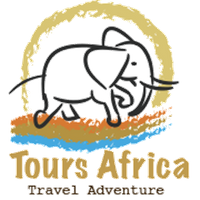
The Strandloper Project Coastal Hike
The Strandloper Project Coastal Hike
As our impact on the environment moves from research to public discussion there has been particular attention on the ocean environment. Plastic straws and cigarette butts have galvanized public focus, initiating mass action but missing from the discussion is the fact that over 40% of plastic pollution in the oceans is composed of lost fishing gear. Sadly lost and abandoned fishing gear continues to ‘fish’ and is able to catch marine animals in a process known as Ghost Fishing.
The Strandloper Project was started by a group of concerned locals wanting to clean up snagged fishing tackle at three fishing sites between Sedgefield and Knysna.
At the primary site, Gericke’s Point, the rate of tackle loss has been calculated at approximately 2.3 sinkers and 2 hooks per meter per month.

Ghost fishing is the ability of lost fishing tackle to continue fishing well after it has been snapped off on a reef. Estimates are that a snagged hook can catch and kill up to 10 fish before disintegrating.

Ongoing dive surveys have recorded incidents of ghost fishing of five species of fish (White Mussel Cracker, Sea Barbel, Kob, Pajama Catshark and Black tail). Results from these surveys have initiated scientific studies and the first Honours project on this subject will start in March 2019.

What can we do about this?
Support a Coastal Hike:
In mid May 2019, a group of six hikers will walk from Stilbaai to Wilderness in order to survey washed up plastic pollution and snagged fishing tackle along that section of coastline between Stilbaai and Wilderness Beach. Plastic pollution and fishing debris will be documented using Cybertracker and will be classed in size, colour and original use and recorded with GPS location.
Where possible, walking will occur between the high water and low water zones. The team will have a backup vehicle to provide logistical support and water provisions. In line with the name Strandloper, the hikers will also aim to forage at least one meal per day from the coastline.
Raise Environmental Awareness:
To raise awareness of the scope of plastic pollution and snagged fishing tackle along our coastline, findings and the progression of the coastal hike will be publicized via traditional media and on social media platforms.
Public Participation:
To assist in raising awareness of the extent of fishing debris and plastic pollution along the coastline the Strandloper Project will also invite schools and other concerned groups to join us on selected stages along the route to assist in collecting and data capturing of plastic debris.
Meet the team
The Strandloper Project has been fortunate to have a large number of volunteers that are concerned about the welfare of the ocean to join us on our transect dives.

For the 10 day coastal hike, seven volunteers have committed themselves to go the distance. Initially planned as a self-sufficiency hike relying on food foraged from the intertidal zone, the limitation of reliable fresh water along the route has forced us to plan a backup team.
Current information on the Strandloper Project can be viewed from these links on their website, Facebook, and blogs here and here. Find The Strandloper Project on Twitter: @StrandloperP and Instagram: @StrandloperProject
For further information please contact:
Mark Dixon or Chris Leggatt
0822135931 0836288547
walk@gardenroutetrail.co.za chris@eden.co.za
#StrandloperProject
Planning a trip to or within South Africa? Book a tour, flights, rent a vehicle and browse accommodation now to get the best rates.
For inspiration and insider tips, follow us on Instagram, Facebook, or Twitter or subscribe to our newsletter to get the best South African experiences sent straight to your inbox.
Schreiben Sie einen Kommentar
Kommentare werden vor der Veröffentlichung genehmigt.






Shannon De Kock
Autor